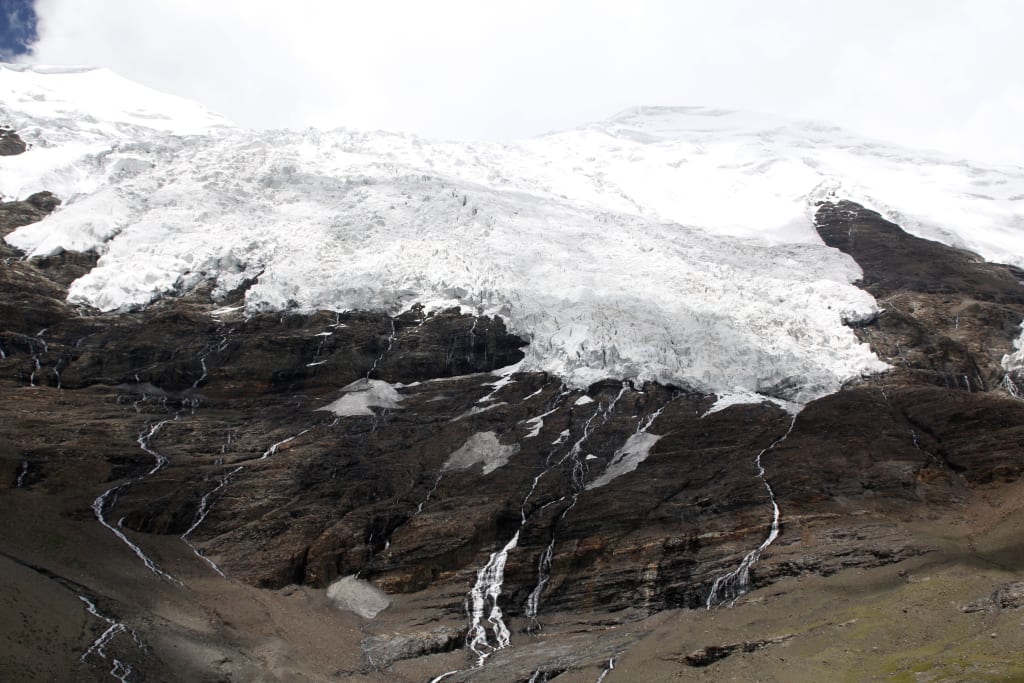
The Dangers of Global Warming
Yesterday the National Environmental Protection Agency released the results of a study that confirmed for the first time that human activity is also partly responsible for global warming. Global warming is already seriously affecting the Earth's ecosystems, human safety, housing, and health.
Scientists have confirmed that it is global warming that is causing flooding along the Atlantic coast and coastal areas around the Gulf of Mexico to occur about five times more frequently than it did in the 1950s.
Global warming is also causing the North and South Pole ice sheets to melt rapidly, and seawater temperatures have reached unprecedented levels. The acidity of seawater from melting Arctic ice is also increasing, which has made global hot weather about three times more likely than it was in the 1960s.
New Zealand sheep fart too much, causing global warming
Many scientists are working on ways to combat global warming, and so are scientists in New Zealand. The image of New Zealand often gives people the impression of large forest meadows and endless flocks of sheep.
However, New Zealand scientists have found out through their research that a large number of sheep can cause global warming. It seems that both human activities and animal activities are to blame for global warming.
Some people may be confused as to why the cute sheep would cause global warming. That is because sheep often fart and burp, producing large amounts of methane, which is one of the most important gases that cause global warming. Simply put New Zealand's sheep fart too much and are a major cause of global warming.
Cattle and sheep produce a lot of methane
Cattle and sheep as the most common livestock outside, they are also very typical of ruminant vegetarian animals, eating in the grass will be in cattle and sheep's stomachs constantly digestion, and finally burping and farting produce a lot of carbon dioxide and methane.
Carbon dioxide can also contribute to global warming, but not nearly as much as methane. Methane is more than twenty times more powerful than carbon dioxide in causing global warming. Methane emitted into the air in large quantities will increase the rate of global warming.
New Zealand scientists breed "less farting sheep"
Scientists in New Zealand have no choice but to use what they have learned to reduce methane emissions from the tens of millions of sheep in the country.
The first idea was to combine previous breeding programs for animals and plants to produce the least farting sheep, and then to pass on this superior gene from generation to generation, using the most scientific method to produce "less farting sheep", thus reducing methane emissions.
The research has been ongoing for several years, and the scientists initially selected nearly 100 sheep for screening. The scientists recorded the amount of methane emitted by each sheep and monitored in real-time how much each sheep farted.
New Zealand sheep emit 35% of the country's total methane emissions
Scientists then divided the flock into high and low methane groups, allowing only sheep with low methane emissions to breed, and found that the genetic predisposition for low farting in the offspring of these sheep was about 25 percent, and have now produced the third generation of low-farting sheep that emit one tenth less methane than before.
A long time ago, New Zealand was a typical farming country, and its main income was from exporting coarse wool, dairy products, and other agricultural products. The ratio of sheep to the population in New Zealand reached 7:1, and there are probably more than 30 million sheep in New Zealand today.
Each sheep will fart and burp, which can release a large amount of methane and carbon dioxide, so the amount of methane gas emitted by tens of millions of sheep is quite huge. Scientists have found that the total amount of methane emitted by sheep already accounts for 35% of New Zealand's total methane emissions, which is why scientists are working to breed "less farting sheep" in the first place.
Scientists are changing the diet of sheep
After breeding "less farting sheep," scientists in New Zealand have to start with the sheep's food. Through the study of sheep, food found that ordinary grass-eating sheep and sheep eating oilseed rape and sugar beets have a significant difference in methane emissions, eating vegetable sheep methane emissions than grass-eating sheep.
However, ranchers are still a little uneasy about directly changing the sheep's recipes from eating grass to vegetables for fear of increasing the cost of feeding, and for fear of affecting the quality and taste of the lamb.
The fight against global warming is urgent
Eighteen years ago, to control the emission of methane gas from sheep, the New Zealand authorities formulated a research tax on agricultural emissions, charging about 60 million RMB per year. The tax was unanimously opposed by the farmers and was eventually dropped.
The dangers of global warming are obvious to all, and scientists have confirmed that every time the average temperature of the earth rises by one degree, the size of animals in the sea shrinks by one-twentieth. Since the industrial revolution, global carbon dioxide emissions have increased by 25%, and the average temperature has risen by 1 to 2 degrees.
If all the ice in the north and south melts, the overall sea level will rise about 67 meters, and most of the world's farmland and land will be submerged, so scientists from all over the world for global warming in response to the research is very necessary.
About the Creator
Lane
Explore the mysteries of the earth with me






Comments
There are no comments for this story
Be the first to respond and start the conversation.